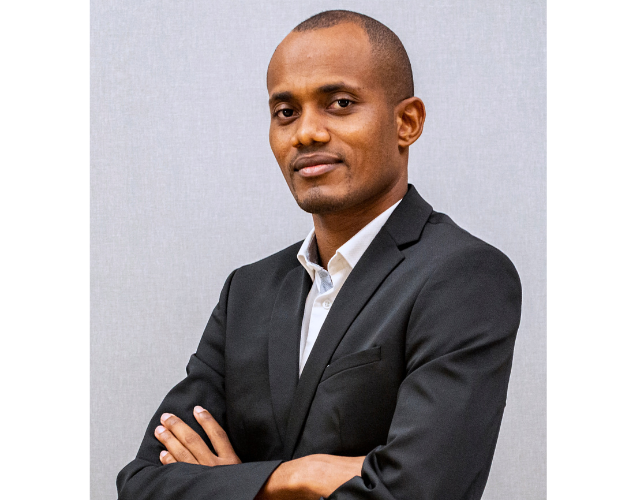As Mauritius has become one of the first countries in Africa to create a bespoke framework for Crowdfunding as an innovative financing mechanism, Dhitoimaraini Foundi, Co-Founder and CEO of Olive Crowd, which provides Crowdfunding solutions to SMEs and startups, explains some of the key highlights of the new rules for companies and institutional investors, and shares his positive experience of obtaining a Regulatory Sandbox Licence from the Economic Development Board in Mauritius.

The Financial Services (Crowdfunding) Rules 2021 came into operation in Mauritius on 4 September 2021. Could you explain the key highlights of the new rules for Crowdfunding, from your perspective?
We have without doubt one of the best regulations in the world in this area, but of course we can always improve further. There are several very interesting points to highlight, particularly in relation to the financial instruments that we are able to offer, the investment and financing thresholds and in terms of investment management.
Concerning the financing instruments, the rules allow us to offer classic products such as shares and bonds and all types of similar instruments. These give companies much more choice when it comes to choosing the most suitable financing instruments according to their maturity and financial strategy.
The second relevant point of the rules is the investment and financing thresholds. Novice investors will be able to invest up to MUR 350,000 per year on a Crowdfunding platform while there are no limits for expert investors. Companies can raise up to MUR 15 million over a period of 3 years.
Finally, in terms of the management of the funds, the operator can manage the funds himself or herself on behalf of the investors. This is a measure that could be of interest to institutional investors who can then just add the amount they want to their account and then let the platform manage them on their behalf. It is a model that is close to that of investment funds.
How do the new rules position Mauritius among other regional economies in Africa?
After Morocco and Tunisia, Mauritius joins the very select club of jurisdictions that have put in place a regulatory framework for crowdfunding in Africa. We are therefore among the first. This is a strong signal from the authorities in favour of the democratisation of Crowdfunding which, as we know, is above all an innovative mechanism to promote investment and business creation. The approach of the Financial Services Commission is likely to improve the business environment.
After moving from Mayotte to Mauritius to establish Olive Crowd as a pioneering Crowdfunding platform under the EDB's regulatory sandbox license (RSL) regime, could you share your expert views on the progress of FinTech in the Indian Ocean region?
Globally, the African Tech ecosystem is very dynamic and has attracted the interest and buy-in of venture capitalists. In 2020, in the midst of COVID-19, the volume of venture capital funding crossed the $1 billion mark to $1.43 billion. It is also worth noting that FinTech retains its hegemony, since it remains the sector that attracts the most investment and represents 25% of fundraising. This demonstrates, once again, the confidence that investors have in FinTech.
In the Indian Ocean region, Kenya and South Africa are among the top 10 African ecosystems. They have raised, respectively, $305 million and $259 million in 2020. Mauritius is still a very young ecosystem that needs to structure itself and upskill its market players so that they are able to scale up in the African markets. This will be, in my opinion, a way to attract the interest of investors to our ecosystem. As Mauritius aspires to become an international financial centre, I think it is an essential asset that could play the role of an accelerator to develop FinTech in the country.
Can you also tell us about your experience working with the EDB under the RSL? How does it feel to have achieved so many firsts, from establishing Olive Crowd under Crowd Invest as the first participatory finance player in Mauritius in 2017, to getting your RSL, and now being on the verge of a more sustainable approval under the FSC, a bespoke regulation for investment-based Crowdfunding?
The representatives that I met at the EDB were very attentive to my needs and were motivated by the desire to help the players make progress in their innovative projects. It was nice and comforting to be able to count on a dynamic team with a good understanding of start-up literature and innovative projects. For example, Jaya Doomun-Dookun, Manager in the Financial Services department of the EDB, was always available and very helpful to us in our successful launch under the RSL, because I recall that our journey was filled with obstacles. I believe that EDB was able to play its facilitator role perfectly.
When it comes to the bespoke regulation, it was of course important to regulate the investment-based crowdfunding activity that Olive Crowd pioneered in Mauritius. It was, above all, a question of presenting Crowdfunding as an innovative financing instrument for companies and start-ups, and a new asset class for investors looking for solutions to diversify their investments. The new Investment-based crowdfunding license brings this guarantee and the credibility that we were looking for, in order to anchor Olive Crowd as a credible and significant player in the Mauritian business world.
What are your views on the initiative in the 2021-22 budget to transfer the RSL to the Bank of Mauritius and the FSC for banking and non-banking innovation respectively?
For me, what is most important is that the RSL is still in force and that we can take advantage of the feedback from the EDB to improve it. We will have to rely on an agile team which will be able to react very quickly to technological changes and adapt the conditions under the RSL accordingly. I think it goes without saying that banking innovations can be tested directly under the supervision of the Bank of Mauritius.
